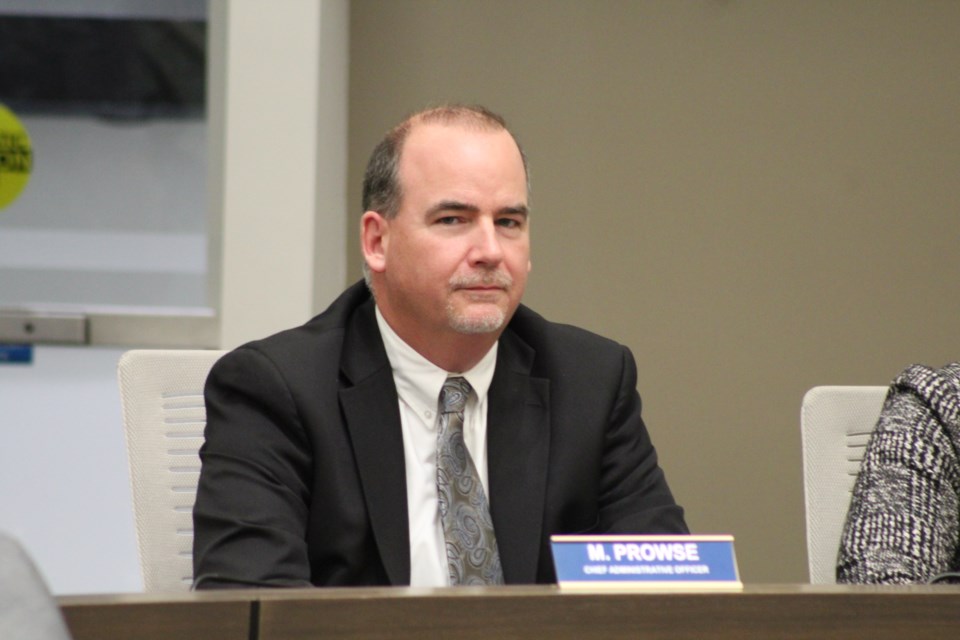A lot can change in a matter of three weeks.
With city council not sitting down together since March 9, chief administrative officer Michael Prowse provided an overview on what has happened since a state of emergency was declared in Barrie on March 23 to deal with the COVID-19 pandemic.
As of Monday morning, the Simcoe Muskoka District Health Unit said there were 50 lab-confirmed cases of COVID-19 in the region. Two men, both in their 70s and who had pre-existing medical conditions, have died recently in Barrie from the virus at Royal Victoria Regional Health Centre (RVH). One of the men was visiting from Alberta. Hospital officials later confirmed the two men were related.
The city's senior management team has been overseeing the coronavirus crisis. The so-called emergency control group (ECG) was activated March 13. The group, which also includes police, fire, hospital and public-health officials, continues to meet on a daily basis to navigate through the situation.
"Those members, although they wear slightly different hats as they sit around the table and have different titles, I sit as the incident commander," Prowse said Monday night during an online meeting of city council, the first of its kind.
The ECG meets every morning, but sometimes several times a day if needed and on weekends, if required.
"The goal is to respond to the current emergency and make decisions in the best interest of the city, and to address whatever the threat or hazard is, and make recommendations," said Prowse, who called it "an ever-changing landscape."
In the last three weeks, Prowse said thousands of decisions have been made by the ECG as they try to minimize COVID-19 transmission in the community.
The CAO said the ECG is relying on information from public-health officials to make their decisions.
"They are certainly closest to it and they are live on the ground," Prowse said. "Decisions that we made have always been grounded in the best science and information that is available, in concert with our partners with the health unit."
When the municipality declared an emergency, city police activated their operations centre. Prowse said police staffing levels continue to be "strong," despite health concerns in the community.
The Barrie fire department, which has also put a pandemic plan in place, is reporting 15 per cent fewer emergency incidents. Its current staffing levels are "high." The fire department has also provided hundreds of masks to the hospital.
Several measures have also been taken to help city taxpayers, including no late fees or NSF charges, extension of pre-authorized payment plans, the elimination water shut-offs until at least June 30, free city transit, and extension or cancellation of recreation passes.
Prowse said it was also "a point of pride" that the City of Barrie was one of the first municipalities to take those steps "to help soften some of the blow during these very difficult times for our residents and our businesses."
City theatres, recreation facilities and other buildings have been closed. Parks and lakeshore exercise equipment are also cordoned off for now.
Sanitization at all city buildings has also been heightened.
Parking enforcement staff has been redeployed to deal with safety issues only.
At Barrie Transit, Prowse said they expect to move to hourly service this coming weekend to reduce on-bus congestion. The number of passengers is limited to 15 riders per bus, with every other seat being taped off.
Access Barrie executive director Rebecca James-Reid said there has been a "steady decline" in the last seven to 10 days on city buses, "so it hasn't become a major problem."
Monday night's online meeting is how council and general committee will be conducted for the foreseeable future.
The mayor is the official spokesperson for the city during the COVID-19 emergency.
"It has often been said over the last several weeks on media by many that COVID-19 is not a short-term event," said Mayor Jeff Lehman. "I've heard it described as a winter, not a blizzard. It is an unusual type of emergency that will be with us for some weeks and potentially months."
Some councillors had questions about how to deal with people who aren't following the guidelines, such as physical distancing and reducing the size of gatherings. The province is now saying groups of no more than five people should get together.
Prowse said he wanted to impart a strong message to residents: "With physical distancing, mathematical modelling shows we can reduce the cases by up to 95 per cent," he said.
With information changing on a daily basis, and sometimes even hourly, Prowse said "our most effective weapon is education."
"It will take some adjustment, but voluntary compliance is going to capture probably 90 per cent of that," the CAO added. "We're going to have to deal with that 10 per cent."
Coun. Mike McCann said he has spoken to friends in the United Kingdom where they are doling out on-the-spot fines. He questioned whether something similar can be done here.
"The message is not getting out clear enough," McCann said.
Dawn McAlpine, the city's general manager of community and corporate services, is working alongside police and the health unit to deal with people who aren't following the guidelines.
The province recently extended powers to municipal bylaw officers that usually fall to police. However, the preference would be voluntary compliance, McAlpine said. If that does not work, fines can be issued. It has only been a few days since the province suggested smaller gatherings and physical distancing.
"It is only a recommendation, it is not law at this point in time," she said. "If it's greater than five (people), we would seek to educate, seek voluntary compliance and after that, individuals may be subject to a fine.
"The city couldn't provide a bylaw that is more restrictive, necessarily, than the province," McAlpine added.
To view the meeting in its entirety, click here.



